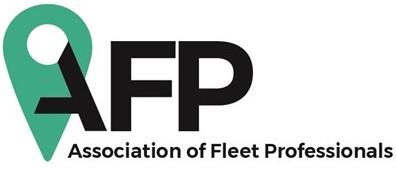Essential expert advice to avoid compliance traps
 Back
BackA growing list of fleet compliance requirements is increasing the risk of errors for operators that rely on manual systems to monitor vehicles.
As companies focus on a growing number of competing priorities, from future fuel choices as part of the shift away from fossil fuel-only vehicles by 2040, to the impact of Brexit, it can limit the time available to spend on fundamental fleet management issues.
But employers face a raft of essential compliance requirements under legislation governing on-the-road activities including: Health & Safety at Work Act 1974, Management of Health & Safety at Work Regulations 1999, Working Time Regulations 2005, Health Act 2006, Corporate Manslaughter and Corporate Homicide Act 2007 and Disability Act 2010.
They also have duties under road traffic law - Road Traffic Act and Road Vehicle (Construction and Use) Regulations - which are administered by the police and the Driver and Vehicle Standards Agency (DVSA).
To aid fleet compliance with all legislation, managers should adhere to the Health and Safety Executive’s (HSE) ‘Driving at Work: Managing Work-related Road Safety’ guidance and van operators should become accredited to best practice initiatives including the Fleet Operator Recognition Scheme (FORS) and the Freight Transport Association’s Van Excellence initiative.
Accurate record keeping is also essential for tax returns, particularly when it comes to records of business mileage in both company cars and private vehicles used for business journeys.
Jaama will provide essential guidance on the legislation fleets needs to be aware of during a best practice session at Fleet Management LIVE in October.
Managing director of Jaama Martin Evans says: “There are no short cuts to legislative and best practice compliance. It is critical that fleet decision-makers have a holistic view of driver and vehicle risk.
“Not only is compliance critical from a legislative perspective, but it is also crucial in respect of corporate image and a company’s on-going focus on cost reduction.
“The spectacular increase in fleet administration witnessed in recent years - and set to continue - means that it is essential to ensure operating efficiency and up-to-date record keeping.”
Although there are no short cuts to legislative and best practice compliance, it is possible to ensure the process is as efficient and automated as possible to provide a holistic view of driver and vehicle risk.
For example, encouraging drivers to ‘self-help’ by uploading information themselves to vehicle management systems, with regular prompts, significantly reduces the administrative burden while ensuring compliance.
Evans says responsibility for drivers to regularly provide requested information should be part of the company’s culture and included within contracts of employment, codes of conduct and job descriptions. A failure to comply should be treated as a disciplinary matter.
He adds that the easiest and most straightforward way for drivers to provide information in real-time is via a smartphone app.
The data provided increases vehicle and driver audit trail accuracy to meet duty of care regulations, notably in respect of who is driving which vehicle and when. This is particularly important when multiple vehicles are available to different drivers.
Jaama has launched its ‘My Vehicle App’ following extensive customer, technological and usability research to ensure in-life vehicle compliance.
In addition, fleet managers should ensure that information uploaded by drivers via any app automatically updates and populates records held within the company’s asset management system that is used to manage vehicles and drivers.
Critical information from a compliance perspective that drivers should provide includes: daily odometer readings; pre-journey vehicle condition checks which can trigger automated alerts and procedures; and accident-related information including photographs, date/time and a summary of what happened.
Evans adds: “To ensure consistent compliance management across a company, with vehicles and drivers located nationally, it is imperative to have a centralised fleet management system, accessed via the web with standardised rule sets across the business.
“Fleet managers can never have enough information at their fingertips. To that end it is essential that systems are in place to collect, measure, manage and process all data into strategic intelligence.
“But given the thousands of data streams, it is critical that issues surrounding non-compliance with in-built rule sets are immediately red-flagged.”
Jaama will be hosting a best practice session on ‘What vehicle rules do I need to comply with and why?’ during Fleet Management LIVE on October 3-4 at the NEC, Birmingham. For details, view the agenda here.

